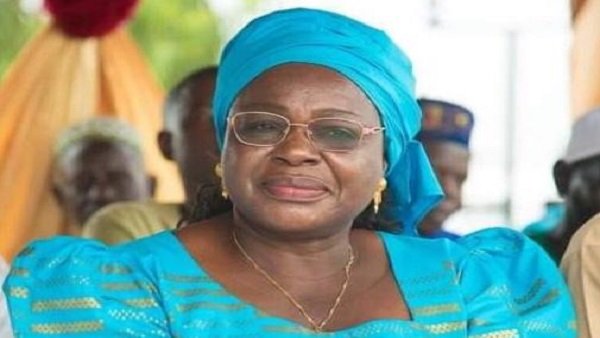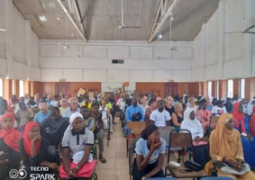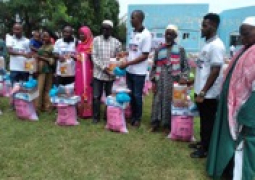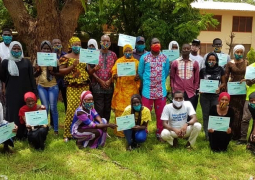
...saying the latter deserves full attention, particularly during this Covid-19 pandemic that affected global businesses including education.
Claudiana A. Cole was speaking on Wednesday during a day’s virtual meeting on the Global Alliance for Literacy’s (GAL) Annual General Meeting (AGM).
The objective of the AGM is to review the impact of the Covid-19 crisis on youth and adult literacy, review national education response plans and strategies in the context of the Covid-19 crisis and beyond, identify areas of support and specific initiatives to respond to new realities in light of the GAL strategic goals and to establish the composition of the new Steering Group and the co-chairs.
The Global Alliance for Literacy is engaging the multiple stakeholders to advocate for the importance of youth and adult literacy and to catalyse in an effective and coordinated manner to improve it in the countries that need it the most.
For Minister Cole, GAL’s AGM deserves a critical review by various educational teams and organizations just like the formal education programs in our various countries.
She commended UNESCO and UNESCO Institute for Lifelong Learning for organizing this important meeting and also for technically supporting the recently implemented Family and Intergenerational Literacy and Learning project (FILL) in The Gambia.
The project, she added was funded by the German Foreign Office.
“The FILL project has immensely contributed to boosting the adult and non-formal literacy subsector in the country. It has enabled adult participants to engage in shared learning with their school-going children as it enables them to support, coach and monitor the learning of their children while they were at home,” Minister Cole explained.
She informed that prior to the outbreak of the Covid-19 pandemic; The Gambia had 177 literacy centers in the country most of which are located in rural Gambia.
“The participants at the centers are mainly female which constitute 84% of the learners. It is important to note that their literacy activities were needs based programming. Participants learn basic functional literacy, numeracy, civic education, and indigenous languages.”
Minister Cole indicated that her ministry started engaging partners to help build a more resilient system that will ensure a strengthened environment for literacy activities for the continuity of learning.
She reiterated her ministry’s determination to work with partners in order to make sure that those who have left school are not left behind.
She however, noted that this bid will not be without regulating some of the perennial challenges that adult and non-formal education unit continues to grapple with, such as low capacity and inadequacy of material resources.
“The challenges facing non-formal education landscape are as follows: Inclusion of ICT in adult literacy programs, strengthening the capacity of non-formal education operatives and limited permanent structures and furniture for adult literacy centers.”
The days virtual meeting attracted high profile international dignitaries such as: Assistant Director General for Education, UNESCO, Ms. Stefania Giannini, who doubled as the moderator, Mr. Edouard Firmin Matoko, assistant director-General for Priority Africa and External Relations, UNESCO, Mr Borhene Chakroun, Director, Division for Policies and Lifelong Systems, UNESCO, Director, UNESCO Institute for Lifelong Learning – Mr. David Atchoarena and Her Excellency Ms. Sarah Anyang Agbor, Commissioner, Human Resources, Sciences and Technology at AU.




